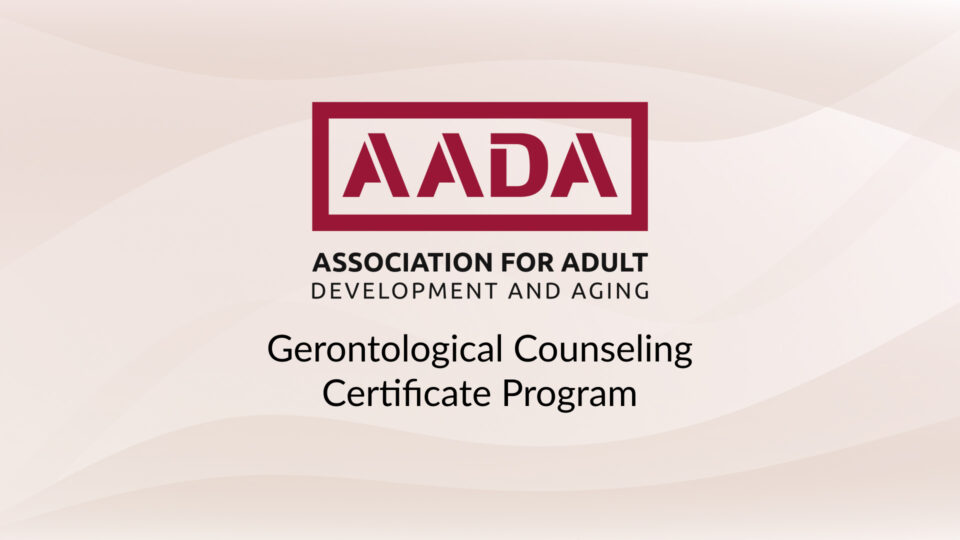
Advocating For Older Adults as Mental Health Practitioners
Information
Date & Time
-
-
Learning Objectives
Participants will be able to:
-
Define advocacy and its necessity in mental health treatment.
-
Generate an action plan using information about federal and state government, medical and mental health systems, and best practices for individual practitioners.
-
Explain the phenomenon of infantilization of older adults and its detrimental effects.
-
Identify and explain the ethical codes inherent in advocacy, including advocacy for minoritized older adult populations.
Educational Goal
The educational goal of this session is to increase awareness of the needs of older adults and how to address those needs through an advocacy model.
Description
This session will focus on how and why mental health practitioners should advocate for older adults. Ageism is a continuing problem in the culture and mental health practitioners are in a unique position to advocate at multiple levels (Chang, 2012; Disability Belongs, 2024). Older adults faced specific challenges during the COVID pandemic that counselors can address and advocate for policy change (Muller, et al., 2021; Richtel & Abelson, 2021). Understanding government, medical, and social systems is essential to effective advocacy for older adults (Pierce, 2024). This presentation will provide historical context of ageism and public policy and a model for advocacy for older adults.
Target Audience
- Counselor
- Marriage & Family Therapist
- Psychologist
- Social Worker
- Substance Use Disorder Professionals
Presenters

Dr. Tom Murphy is a Licensed Mental Health Counselor based in Albany, New York. He held a post as a tenured Associate Professor at The College of Saint Rose. Dr. Murphy is now President Elect of the New York Mental Health Counselors Association and maintains a private practice called Trauma Informed Mental Health Counseling Associates, PLLC (TIMHCA). Dr. Murphy received both his Masters in Clinical Mental Health Counseling and Doctorate in Counselor Education & Practice at Georgia State University and is an Approved Clinical Supervisor. He is currently the Treasurer for the Association for Adult Development and Aging.
Financially Sponsored By
- Association for Adult Development & Aging (AADA)